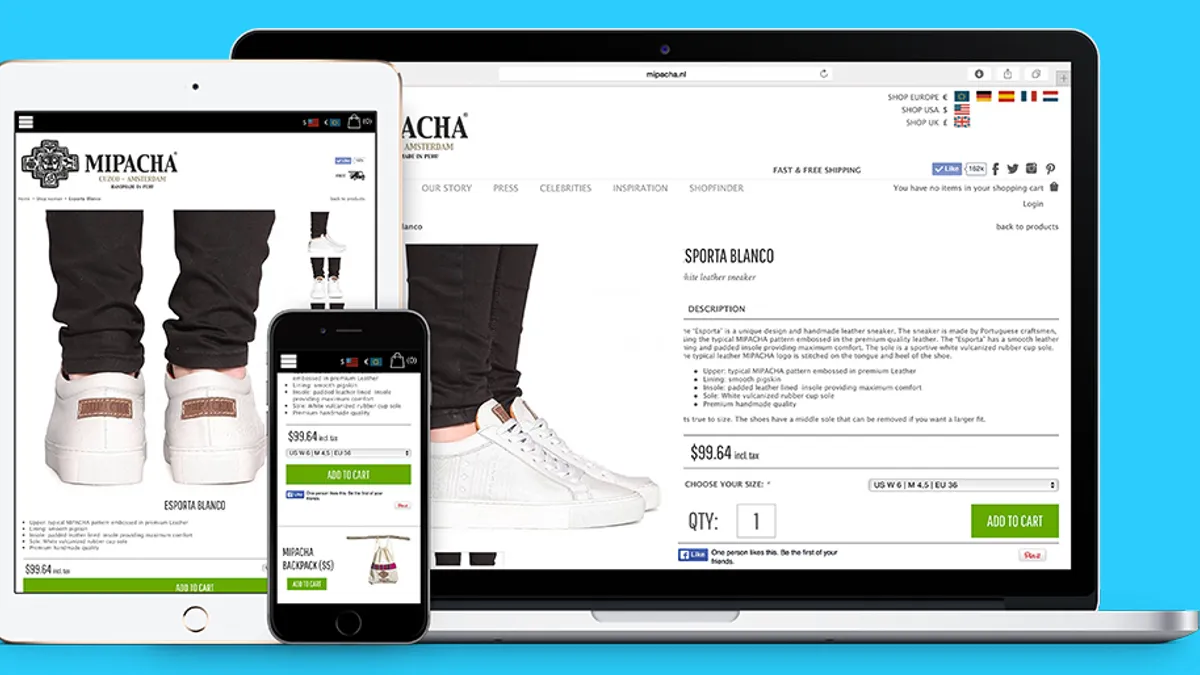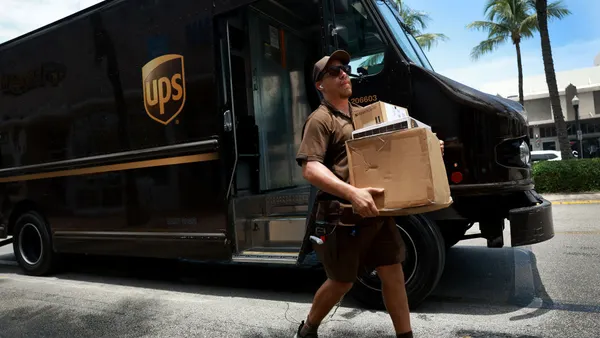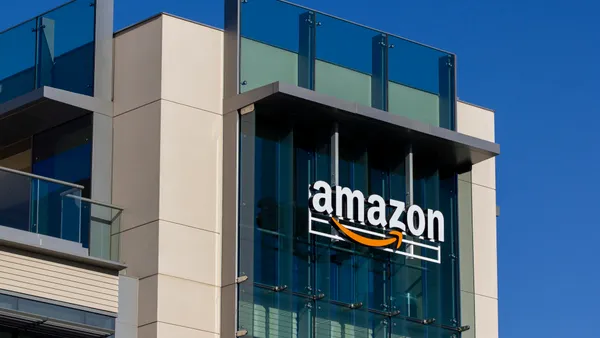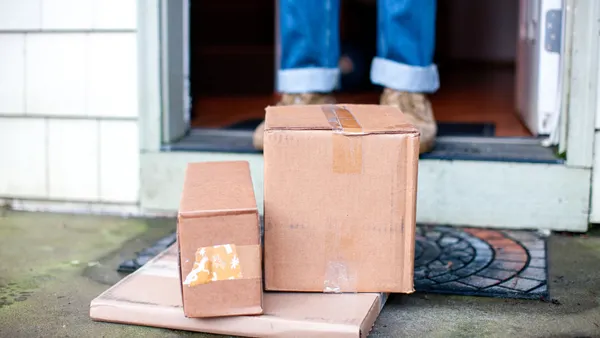Dive Brief:
- A large majority of international shoppers said they buy from global marketplaces, citing better prices and cheaper shipping, according to a UPS study.
- The study captured behaviors and preferences of online shoppers in the U.S., Asia, Europe, Canada, Mexico and Brazil.
- Increasingly, shoppers are using smart phones to transact purchases.
Dive Insight:
We all know consumer behavior — and the act of shopping itself — are changing as the growth of technology has made e-commerce a phenomenon. The just-released UPS Pulse of the Online Shopper Study details how behavioral shifts include seeking better prices and more choice, control and convenience. The study also captures geographic differences, information essential to retailers as e-commerce transcends borders.
Consumers in almost all of the markets surveyed shop at marketplaces — third-party e-commerce sites that allow multiple merchants to sell products. The figures are staggering: 99% in Mexico, 98% in Asia and 96% in Europe and Canada, for example. Shoppers said better prices and free or discounted shipping were their primary reasons.
The study also revealed global competition for customers is increasing, with a significant number of online shoppers in Canada (83%), Brazil (81%) and Mexico (78%) making purchases from international retailers. In the U.S., nearly half (47%) of shoppers made international purchases. Consumers shopped internationally primarily for better prices and access to specific or unique products.
In addition, consumers used their smart phones to search for products, compare prices, locate stores and track deliveries. At least 70% of respondents in all regions said they used their smart phones to compare prices while shopping in stores.
Shoppers expect quick fulfillment of online orders and speedy delivery across all regions, but expectations for what counts as 'quick delivery' differ. Consumers in Asia, Mexico and Brazil, for example, expect to be able to place orders later in the day and still be eligible for same-day and next-day delivery.
The reverse supply chain also was part of the study. When both online and in-store return options were available, shoppers in Asia and Europe preferred to ship back to retailers while customers in the U.S., Canada, Mexico and Brazil, prefer to return online orders to a physical store.
This is important information for retailers who want to remain competitive and successful. Among other takeaways in the study, UPS advises companies to explore and incorporate new technologies, such as robots and chatbots, to enhance the consumer experience. Online shoppers indicated they want technology that enables rewarding, personalized experiences both online and in the store.













